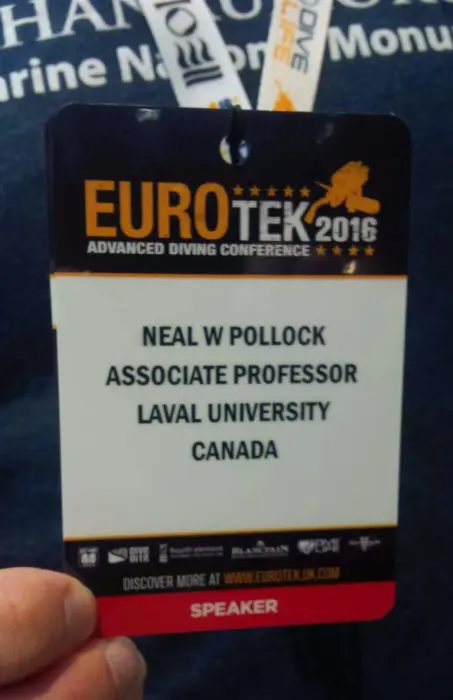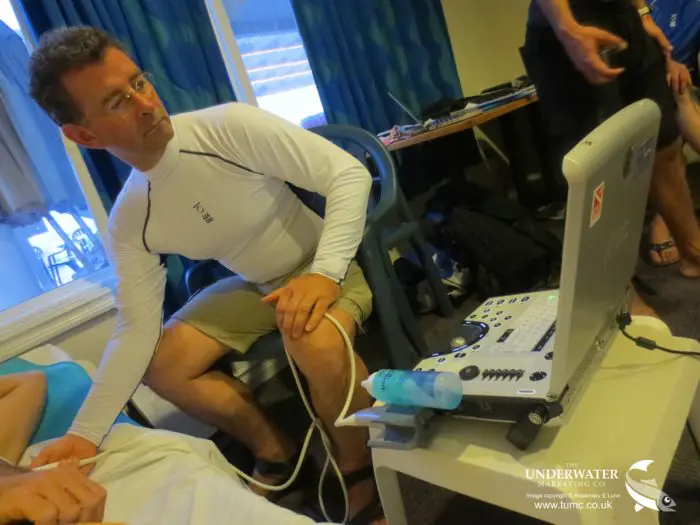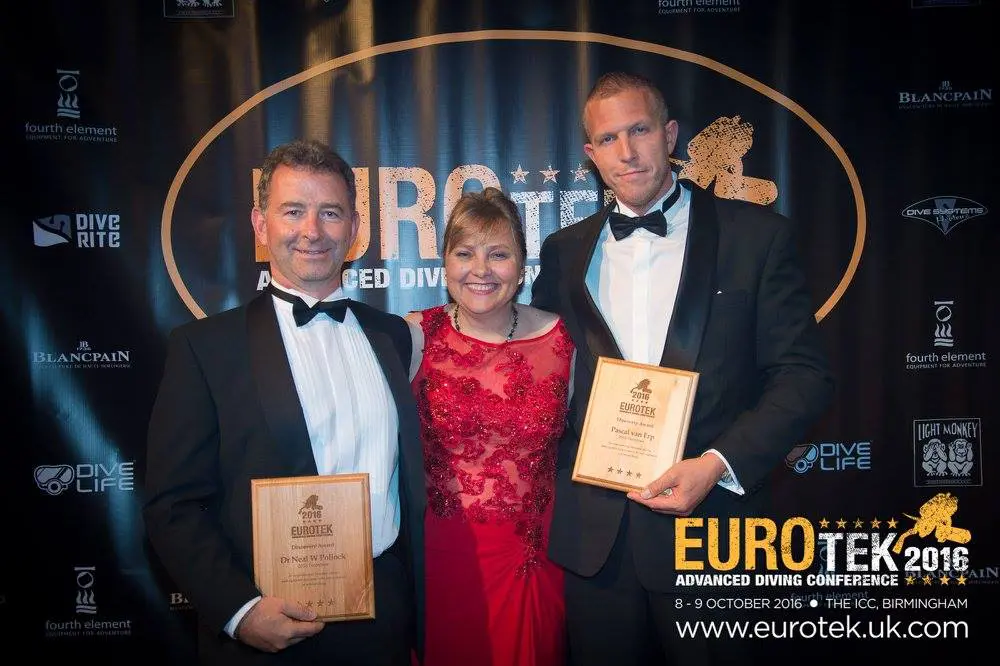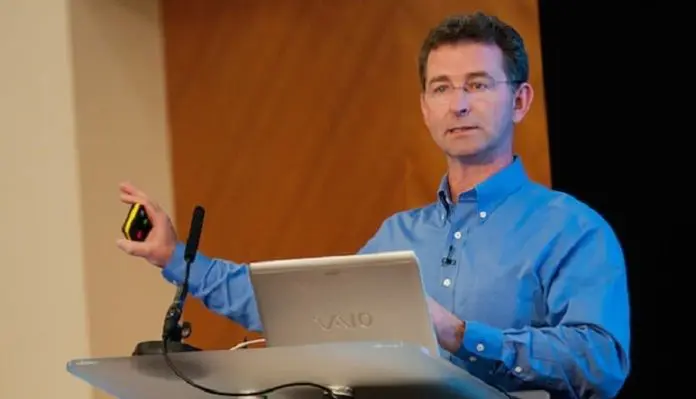The gathering of the clans at dive events is always a great way to make friends, establish relationships and catch up on news. One story that broke during October’s European advanced diving conference concerned EUROTEK speaker, Dr. Neal W Pollock. Article author and EUROTEK co-founder Rosemary E Lunn announced the news that Dr. Pollock had become an Associate Professor during the Gala Award Dinner.

Pollock has been appointed as Research Chair in Hyperbaric and Diving Medicine at Laval University, Quebec. He will also serve as an Associate Professor in the Department of Kinesiology, School of Medicine. The Chair position is new; possibly the first of its kind in North America. The purpose is to provide overarching support and promotion of hyperbaric and diving medicine.
“Hyperbaric medicine is frequently overlooked by mainstream medicine practitioners”, explained Pollock. “There is actually many opportunities to bring together different discipline areas to develop potentially useful applications.”
A simple example of how the arcane knowledge of one group can play a role in developing effective strategies for another has just been published by a Brit. The UK study concerned radiation therapy.
Cancer tumors are surrounded by healthy tissues. If the tumor is located in an area of the body that can be kept still, it is easier for just the tumor to be precisely targeted by radiation therapy. But if the tumor is in or near the lungs, for example, the chest will move as the patient breathes. This makes the targeting of radiation therapy more difficult; increasing the amount of collateral damage. The Brit study evaluated the use of breathing oxygen prior to radiation treatment to prolong the patient’s ability to breath-hold. Oxygen-enhanced breath-hold has long been understood in the diving community. Using it during radiation treatment can enable patients to remain still and help reduce damage to healthy tissue.

Pollock’s new role is a huge opportunity to bridge operational practice with clinical medicine. The unit will be able to take lessons learned from one community and apply them to others.
“We are limited only by the expertise and creativity of collaborators”, stated Neal Pollock. “I look forward to opportunities to engage smart brains to promote crossover work. We often benefit by learning to view the world a bit differently.”
“I have enjoyed my two decades at Duke and DAN. I was invited to North Carolina in 1996 by Dr. Richard Vann to work at the Center for Environmental Physiology and Hyperbaric Medicine at Duke. Increasing my involvement with DAN made sense as a natural extension of my prior safety work as Diving Officer at the University of British Columbia.”

“I am proud to have served as DAN’s Research Director, and will continue to support DAN mission initiatives, but it is a real honor to be invited to take on the challenges of this new program. It is also very exciting to spend more time in my birth country.”
“The Laval and Levis groups are passionate and the hyperbaric facility top class. It will be fantastic to help develop new opportunities for collaboration in research and education. We will be drawing on local and international talent to create new initiatives. Given the beauty of Quebec City, we will have no difficulty drawing folks in to participate in future events.”

